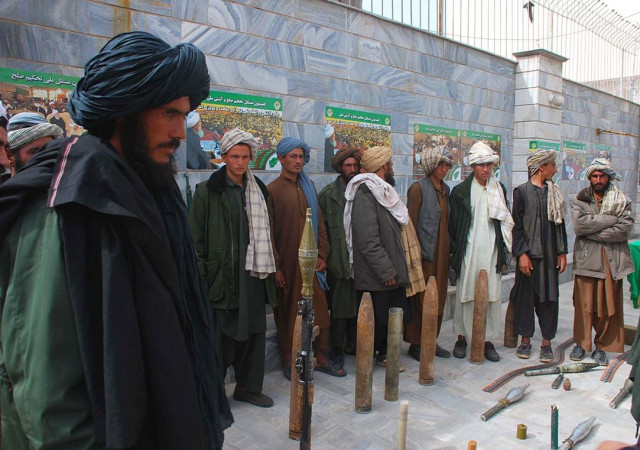Guarded response: Taliban hint at accepting Saudis as peace brokers
Commander of the group says implementation of a peace deal must be ‘guaranteed’ beforehand.

Guarded response: Taliban hint at accepting Saudis as peace brokers
The banned conglomerate of militant groups, Tehreek-e-Taliban Pakistan (TTP), will seek mediation by countries like Saudi Arabia, if the government offers them peace talks — a top militant leader of the banned outfit said in a ‘cautious’ response to Pakistan’s earlier decision to open negotiations with the group.
At the All Parties Conference (APC), the country’s top political and military leaders decided last month to initiate peace negotiations with the militant groups active in the country’s lawless tribal badlands, including the TTP.
The decision – apparently reflecting a significant shift in Pakistan’s war on terror policy – came in the wake of allegations by top defence officials of the United States that the country’s top spy agency, the Inter-Services Intelligence (ISI), was nurturing the deadly Haqqani network of Afghan militants allegedly based in North Waziristan.
“We will see. Our shura (council) will decide whether and when can we enter into talks with the government, with the military…but I think we will like to involve countries we trust…they are in the Arab world. Let’s say Saudi Arabia,” said Maulvi Waliur Rehman Mehsud.
Wali – second-in-command to TTP fugitive chief Hakimullah Mehsud – was responding to questions sent to him by The Express Tribune.
“Till now, we don’t have any direct peace offer…our shura will sit down when we are approached. That is how we operate. There is one centralised body to take important decisions,” he added but did not mention who were the members of the council or who heads it.
But according to recent media reports, Sheikh Khalid – a militant leader hailing from Mardan district of Khyber-Pukhtunkhwa – was leading the shura. But it is understood that in most cases, Hakimullah himself takes the final decisions.
The APC had decided that the proposed dialogue would not be spearheaded either by the government or the military alone but a ‘national institutionalised mechanism’ might be developed for that.
A participant of the APC then told The Express Tribune that the new mechanism might be based on the pattern of the High Peace Council (HPC) Afghan President Hamid Karzai had set up last year to reach out to the insurgents.
“It would not be exactly the same but is likely to have striking similarities.
Parliament and the politicians will have a central role in it,” he said.
Meanwhile, Wali said that the TTP wanted a ‘guarantee’ that once the deal is struck, it will be enforced.
Both Pakistan officials and the militant groups blame each other for dishonouring three such agreements they had made in the past. However, Wali did not point an accusing finger at either the Pakistani government or the military this time.
Published in The Express Tribune, October 10th, 2011.
______________________________________________
[poll id="526"]



















COMMENTS
Comments are moderated and generally will be posted if they are on-topic and not abusive.
For more information, please see our Comments FAQ